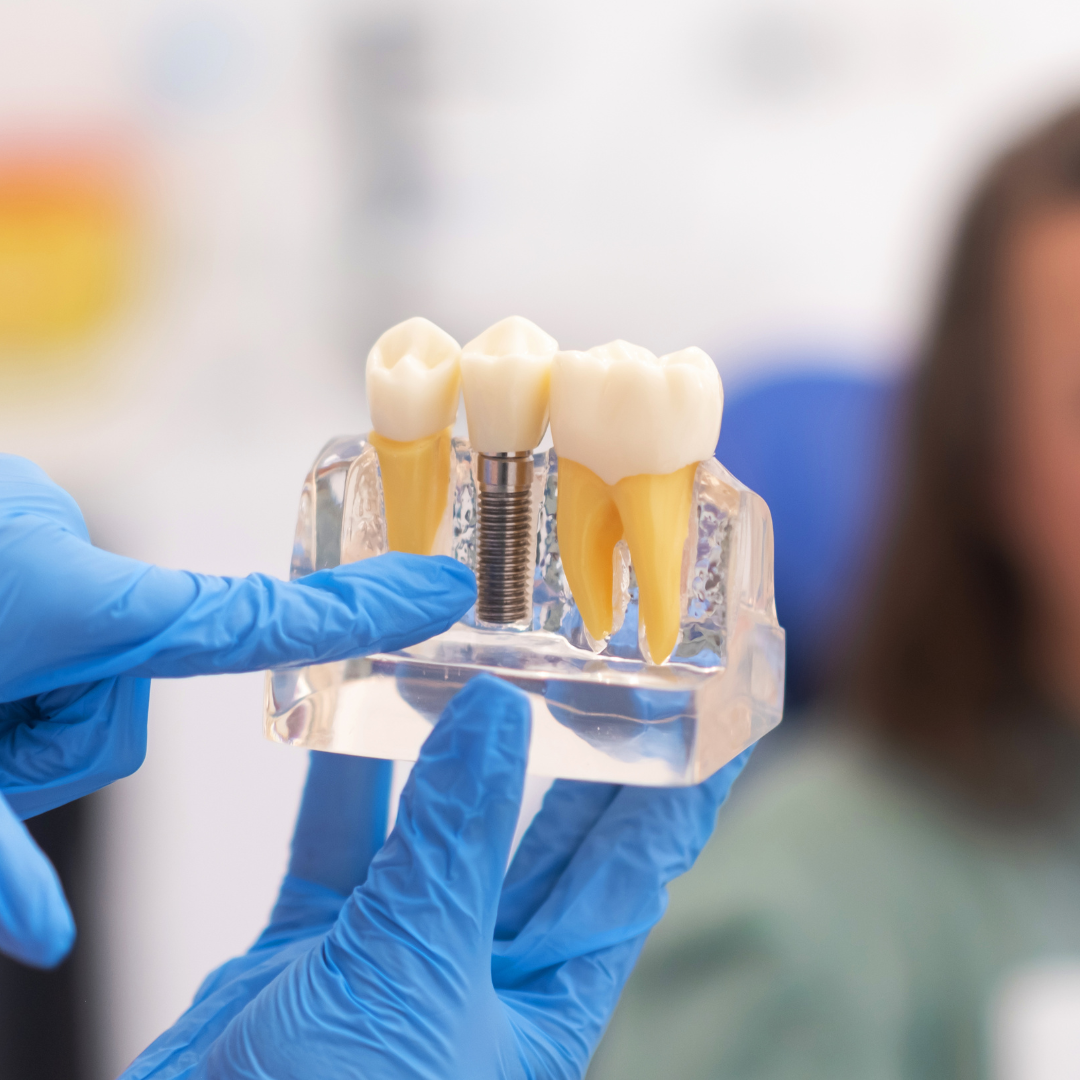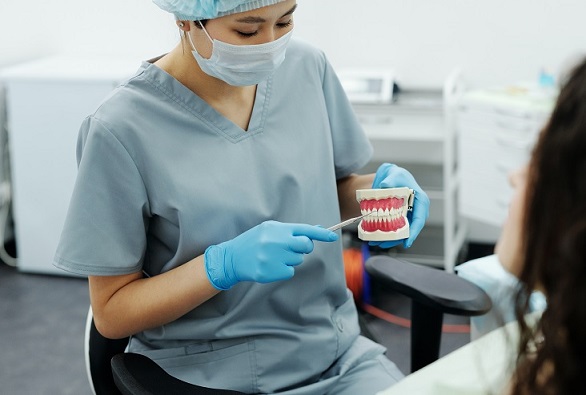Dental Implant Maintenance: Essential Tips for Long-Lasting Results

Dental implants are a revolutionary solution for individuals with missing teeth, providing a permanent and natural-looking replacement. They offer numerous advantages, including improved functionality, aesthetics, and oral health. However, like natural teeth, dental implants require proper care and maintenance to ensure longevity and effectiveness. This article delves into essential tips for maintaining dental implants, helping you achieve lasting results and a healthy smile.
Understanding Dental Implants
Before diving into maintenance tips, it’s essential to understand what dental implants are and how they work. A dental implants Brisbane consists of three primary components:
- Implant Post: A titanium screw surgically placed into the jawbone, acting as the artificial tooth root.
- Abutment: A connector piece that attaches to the implant post, serving as a base for the crown.
- Crown: The visible part of the tooth, custom-designed to blend seamlessly with your natural teeth.
Dental implants integrate with the jawbone through osseointegration, creating a stable foundation for replacement teeth. With proper care, dental implants can last a lifetime, making them a worthwhile investment in oral health.
The Importance of Dental Implant Maintenance
Proper maintenance of dental implants Brisbane is crucial for several reasons:
- Longevity: Like any dental restoration, implants require care to ensure longevity. Neglecting maintenance can lead to complications such as infections, gum disease, and even implant failure.
- Aesthetics: Regular care helps maintain the appearance of your implants and surrounding teeth, ensuring your smile remains attractive.
- Oral Health: Good oral hygiene prevents the buildup of plaque and bacteria, reduces the risk of complications, and promotes overall oral health.
Tips for Maintaining Your Dental Implants
- Establish a Routine Oral Hygiene Practice
Maintaining a consistent oral hygiene routine is essential for the health of your dental implants. Here are some essential practices to incorporate into your daily routine:
- Brushing: Brush your teeth at least twice daily using a soft-bristled toothbrush and non-abrasive fluoride toothpaste. Focus on cleaning around the implant area to remove plaque and food particles. Consider using an electric toothbrush, which may be more effective at removing plaque than manual brushing.
- Flossing: Flossing is crucial for removing debris and plaque between your teeth and around your implants. Use waxed dental floss or interdental brushes designed for dental implants to prevent damaging the surrounding gums. Be gentle when flossing around the implant area to avoid irritation.
- Rinsing: Incorporate an antibacterial mouthwash into your routine to help reduce bacteria in your mouth and promote gum health. Look for alcohol-free mouthwashes, as alcohol can dry out your mouth and irritate your gums.
- Regular Dental Check-Ups
Routine dental check-ups are vital for the long-term success of your dental implants. Schedule appointments with your dentist at least every six months for professional cleanings and examinations. During these visits, your dentist will:
- Inspect Your Implants: Your dentist will examine your dental implants to ensure they are functioning correctly and not showing any signs of complications.
- Assess Gum Health: Your dentist will evaluate the health of your gums and surrounding tissues, checking for any signs of inflammation or infection.
- Professional Cleaning: A dental hygienist will thoroughly clean to remove plaque and tartar buildup that regular brushing and flossing may miss.
- Adopt a Healthy Diet
Your diet plays a significant role in maintaining the health of your dental implants. Here are some dietary tips to consider:
- Calcium and Vitamin D: Consume foods rich in calcium and vitamin D to promote strong bones and support the jawbone where your implants are anchored. Dairy products, leafy greens, and fortified foods are excellent sources.
- Limit Sugary and Acidic Foods: Sugary and acidic foods can contribute to plaque buildup and tooth decay, increasing the risk of implant complications. Limit consumption of candies, soda, and acidic fruits.
- Stay Hydrated: Drinking plenty of water helps maintain saliva production, essential for neutralising acids and washing away food particles.
- Avoid Tobacco Products
Smoking and using tobacco products can significantly impact the success of your dental implants. Tobacco use reduces blood flow to the gums, impairing healing and increasing the risk of complications. If you smoke, consider quitting to enhance the longevity of your implants and improve your overall oral health. Many resources are available to help you quit, including support groups, medications, and counselling.
- Protect Your Implants from Damage
Dental implants are designed to be durable, but they can still be damaged under certain conditions. Here are some precautions to take:
- Wear a Mouthguard: If you grind your teeth at night (a condition known as bruxism) or participate in contact sports, consider wearing a mouthguard. This protective device will help safeguard your implants from excessive force and impact.
- Avoid Hard Foods: While dental implants are sturdy, it is wise to avoid tough foods that can potentially damage the crown or abutment. Chewing ice, hard candies, or other challenging items can put undue stress on your implants.
- Monitor Your Oral Health
Pay attention to your oral health and promptly report any changes or concerns to your dentist. Be on the lookout for:
- Swelling or Tenderness: If you notice swelling, tenderness, or bleeding around your implants, contact your dentist. These could be signs of infection or gum disease.
- Loose Implants: If your implant is loose or has shifted, seek immediate dental attention. Early intervention can prevent further complications.
- Changes in Bite: If you experience changes in your bite or difficulty chewing, it’s essential to have your dentist evaluate the situation. This may indicate issues with your implants or surrounding teeth.
- Consider Additional Treatments if Needed
In some cases, additional treatments may be necessary to maintain the health of your dental implants. Your dentist may recommend:
- Bone Grafting: If you experience bone loss around your implant, a bone graft may be needed to restore the necessary support.
- Sinus Lift: A sinus lift can create the necessary space for successful implant placement if you require implants in the upper jaw and lack adequate bone height.
- Gum Grafting: A gum graft can help restore gum tissue and support your implants if your gums have receded.
- Stay Informed and Educated
Educating yourself about dental implants and their maintenance can empower you to better care for your oral health. Stay informed about the latest advancements in implant dentistry and the best practices for maintaining your implants. Your dentist can provide valuable resources and guidance.
The Consequences of Neglecting Dental Implant Maintenance
Neglecting proper care and maintenance of your dental implants can lead to several complications, including:
- Peri-implantitis is an inflammatory condition affecting the tissues surrounding the implant, similar to gum disease. It can cause bone loss and may lead to implant failure if not addressed promptly.
- Implant Failure: In some cases, neglecting care can cause implant failure. This can happen due to infection, bone loss, or excessive force placed on the implant.
- Aesthetic Concerns: Failing to maintain your implants can result in discolouration or changes in appearance, negatively impacting your smile.
- Increased Costs: Addressing complications from poor maintenance can increase dental costs for treatments, repairs, or replacements.
Conclusion
Maintaining your dental implants is essential for ensuring their longevity and effectiveness. Establishing a consistent oral hygiene routine, scheduling regular dental check-ups, adopting a healthy diet, avoiding tobacco products, and monitoring your oral health can help keep your implants in excellent condition. Dental implants can provide you with a beautiful, functional smile for many years with proper care.
If you have questions or concerns about your dental implants, don’t hesitate to consult with your dentist. They can provide tailored advice and support to ensure that your implants remain a valuable part of your oral health journey. With the proper maintenance and care, you can enjoy the confidence and comfort of a radiant smile and lasting dental implants.



